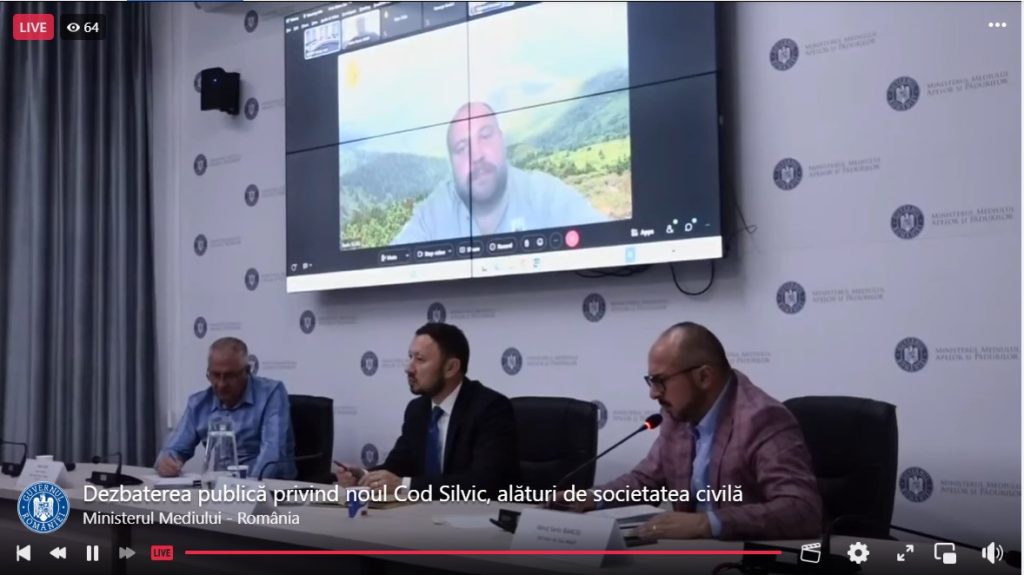We appreciate the Environment Ministry’s effort to ensure an open process in drafting the new Forestry Code and especially the Government’s decision to take this project through the Parliamentary procedure. That's why we have actively been involved in the discussions (min 30) the Ministry had with the civil society this week.
The Forestry Code project represents the last, decisive stage within a process that began 4 years ago, by which Romania wanted to create a new national forestry policy. In 2020 the country formulated some strategic options, in 2021 it assumed the reform plan within the PNRR and in 2022 it approved the National Strategy for Forests (SNP), by government decision, along with the strategic action directions, clear result objectives and monitoring indicators. In 2023, we must have these strategic directions transposed into a new Forestry Code.
Unfortunately, we think that the new Forestry Code draft does not take into account a series of strategic directions set by the SNP. The so necessary administrative reforms are missing, whether if we are talking about the architecture of the illegal logging combat system, about making the forestry administration less bureaucratic and more efficient or about promoting superior wood processing activities that support a sustainable development for the local communities. Instead, it involves major risks such as the uncontrolled logging increase, the reduction of forest areas, the beginning of a new wave of appropriations from state forests. In addition, there are no mechanisms in place to make sure that the legitimate rights of forest-dependent communities are enforced.
We sent all our technical comments and proposals regarding the Forestry Code to the Environment Ministry. We will continue to get involved in the public consultation process and support the amendments that are necessary so that the National Strategy for Forests can turn into reality.

